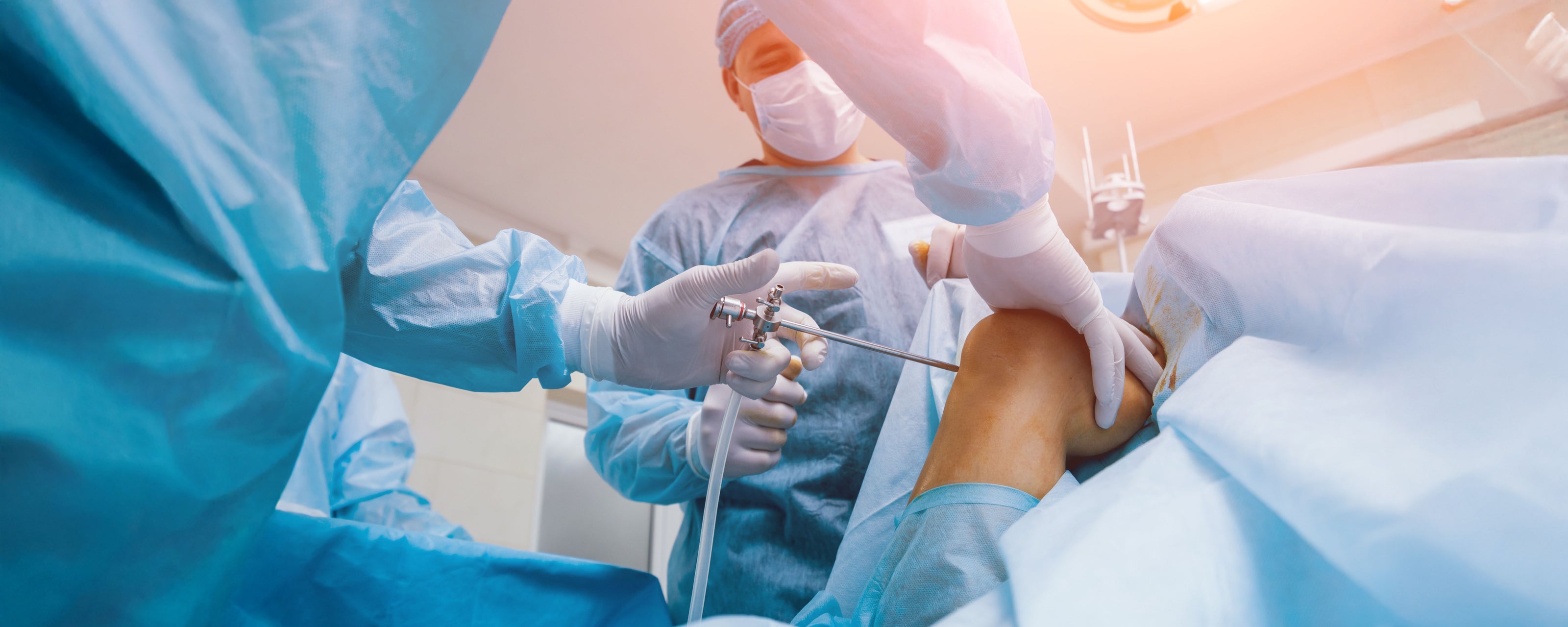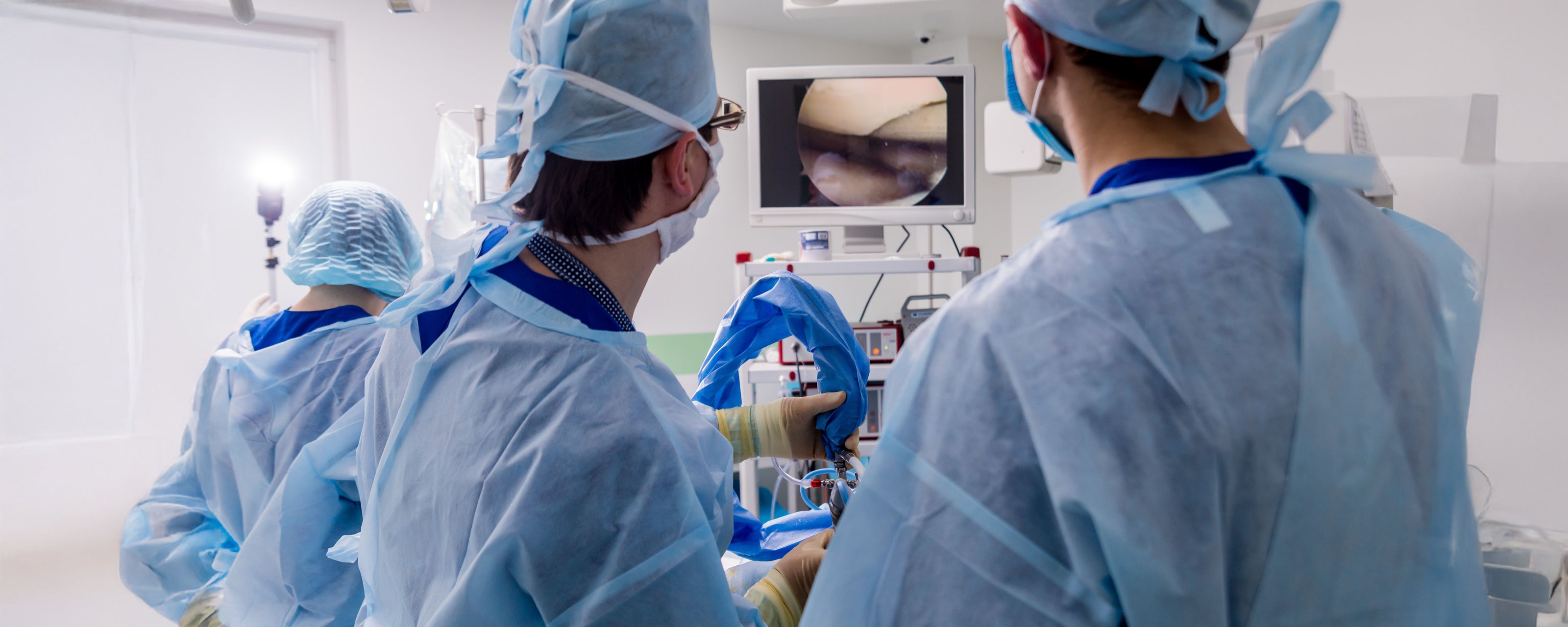
Knee Arthroscopy Surgery
Knee arthroscopy is a modern, minimally invasive surgical procedure used to diagnose and treat a variety of problems inside the knee joint.

-
Knee Arthroscopy Surgery
Knee arthroscopy is a modern, minimally invasive surgical procedure used to diagnose and treat a variety of problems inside the knee joint. It is performed through small keyhole incisions using a camera (arthroscope) and fine surgical instruments, allowing your surgeon to view and treat the joint with precision.
-
Why is Knee Arthroscopy Performed?
Knee arthroscopy is commonly recommended for patients with ongoing knee pain, swelling, locking, or instability that hasn’t improved with non-surgical treatment.
Conditions that can be treated using arthroscopy include:- Meniscal tears
- Cartilage damage
- Loose fragments (such as bone or cartilage)
- Early degenerative changes
- Inflammation of the joint lining (synovitis)
- Ligament injuries in selected cases
This procedure can be both diagnostic and therapeutic, meaning it helps confirm the cause of symptoms and allows for immediate treatment during the same operation. -
The Procedure
Knee arthroscopy is usually performed as a day case under general or spinal anaesthesia. Two or more small incisions (typically less than 1cm each) are made around the knee to allow the camera and instruments to be inserted. The joint is washed out, and any necessary treatment—such as trimming or repairing a torn meniscus or smoothing damaged cartilage—is carried out.
The incisions are closed with simple stitches or steri-strips, and a dressing is applied. Most patients are able to walk out of hospital the same day. -
Recovery and Rehabilitation
Recovery from knee arthroscopy is generally quicker than open surgery. Mild swelling and discomfort are normal in the first few days and can be managed with ice, elevation, and simple painkillers. You will usually be encouraged to start gentle exercises early, and in many cases, physiotherapy is recommended to aid recovery.
Return to work and sport depends on what was done during the procedure. Some patients resume light activities within a few days, while others—especially those who have had a repair—may need a longer recovery period and temporary activity restrictions. -
Benefits of Knee Arthroscopy
- Minimally invasive with small scars
- Faster recovery compared to traditional open surgery
- Precise treatment of internal knee issues
- Usually performed as a day case
-
Is Knee Arthroscopy Right for Me?
Arthroscopy is not always necessary and may not be effective in advanced arthritis. However, for many patients with mechanical symptoms or specific types of cartilage and meniscal injury, it can provide relief and help restore function. After a full assessment and review of your imaging, I will advise you whether this procedure is appropriate for your condition.

